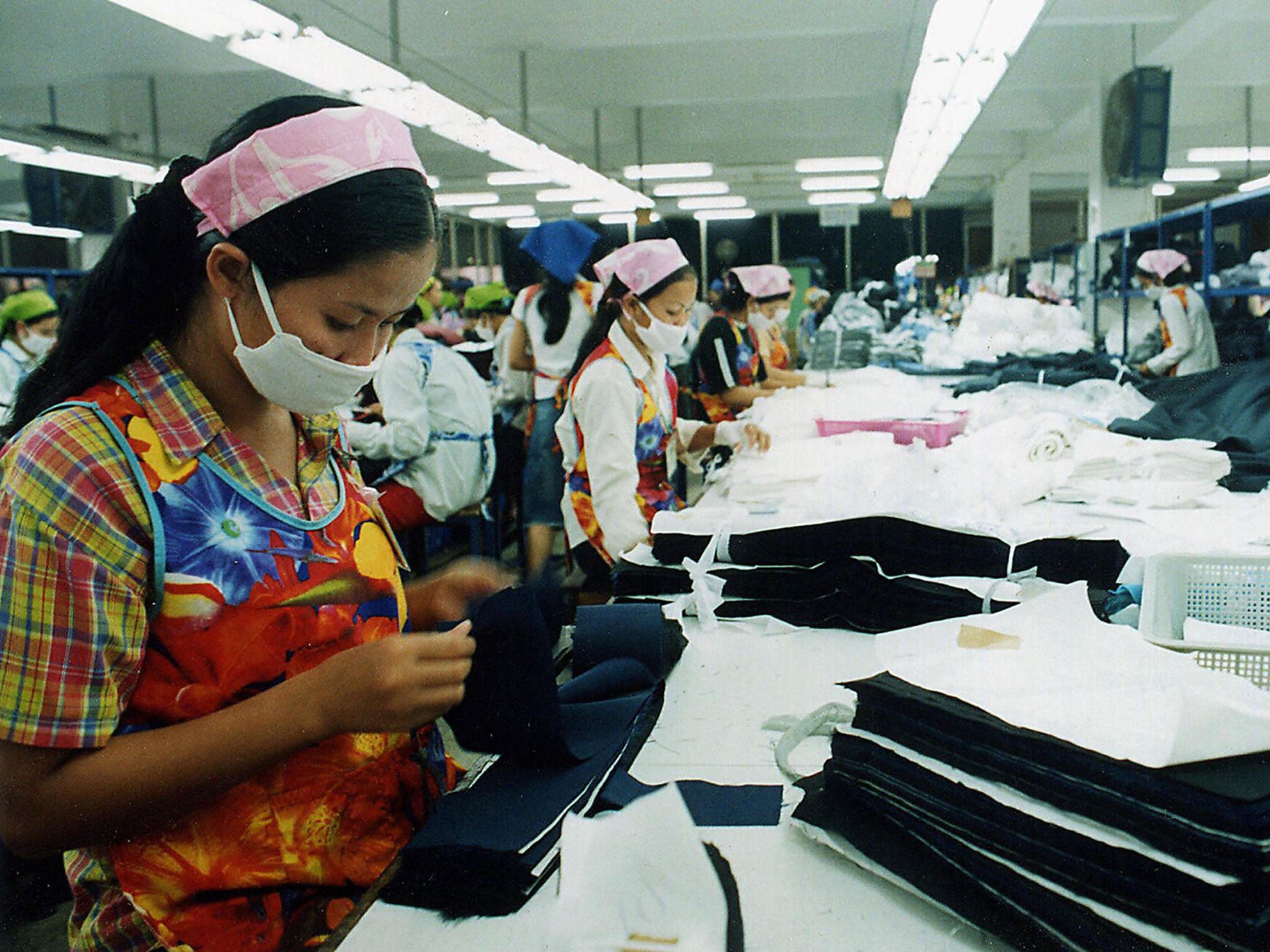Cambodian textile workers who supply UK clothing stores ‘starving’ and suffering 'mass faintings'

By the time London Fashion Week comes to a close, 58 high-end designers will have shown their collections. Rail-thin models will have walked the runways. Debate will have raged over size zero.
In Cambodia, meanwhile, garment workers stitching clothes that supply the UK high street are malnourished to the point of collapse.
According to a study released on Monday, a third of Cambodian garment workers producing clothes sold in the UK by global brands, including clothing giant H&M, are not getting enough food. Some 25 per cent are so underweight they would be classified as anorexic were they diagnosed in the UK.
The findings of the report by worker rights group Labour Behind the Label follow a spate of mass faintings over recent years, when groups of up to 300 at a time have passed out.
Researchers attributed the incidents to the “serious” malnourishment of the industry’s 400,000-plus mostly female employees who work for a monthly minimum wage of around $80 (£50) – too little to fund an adequate diet, the researchers say.
One of the workers interviewed for the study said she and fellow workers at a factory near the capital, Phnom Penh, were “constantly on the point of fainting”. “We are tired and we are weak. It takes only a few small things to tip us over the edge,” she said.
According to the report, Shop ‘Til They Drop, employees consumed around half the calories needed for garment factory work, while protein intake fell well below half the basic human need. The recommended 3,000-calorie diet alone would cost some $75 (£47) a month, leaving just $5 (£3) for all other costs.
Although some factories offer allowances for food, these are often spent on other essential expenses, which for many include sending a share home to family members, the report states.
One of its suggestions is that, in addition to increasing wages, factories should provide free, nutritious lunches. But Ken Loo, the general secretary of the Garment Manufacturers’ Association of Cambodia (GMAC), said that was not the employer’s job. “Are you really asking if the workers are malnourished because they don’t have enough money for food to eat when half of them have mobile phones?” he said.
Representatives of H&M did not immediately respond to requests for comment but a statement from the report’s authors said they and other brands had met with union representatives and NGOs in Cambodia to discuss both the findings and canteen provision.
Subscribe to Independent Premium to bookmark this article
Want to bookmark your favourite articles and stories to read or reference later? Start your Independent Premium subscription today.

Join our commenting forum
Join thought-provoking conversations, follow other Independent readers and see their replies